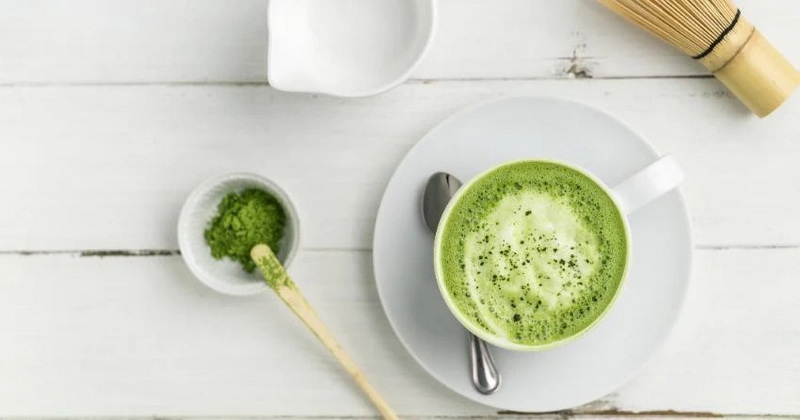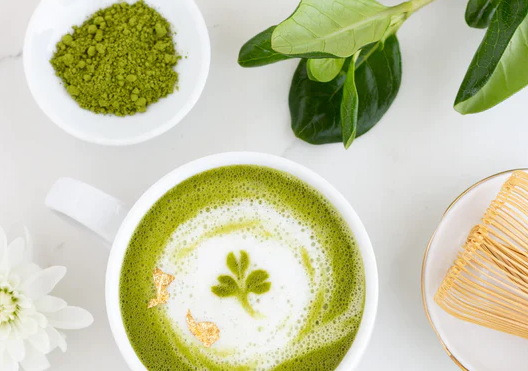Content Menu
● Introduction to Green Tea and L-Theanine
>> What is L-Theanine?
● Cognitive Benefits of L-Theanine
>> Studies on Cognitive Improvement
● Mechanisms Behind Cognitive Enhancement
● Green Tea Extract and Cognitive Function
● L-Theanine Concentration and Cognitive Benefits
>> Dosage Considerations
● Safety and Side Effects of L-Theanine
>> Potential Interactions with Medications
● Additional Considerations for Cognitive Health
>> Lifestyle Factors and Cognitive Function
>> Dietary Interventions for Cognitive Health
>> Mindfulness and Cognitive Function
● Conclusion
● FAQs
>> 1. What are the primary cognitive benefits of L-theanine?
>> 2. How does L-theanine interact with caffeine?
>> 3. What are the potential risks of consuming L-theanine?
>> 4. Can green tea extract alone improve memory?
>> 5. How much L-theanine is typically recommended for cognitive benefits?
● Citations:
Green tea, particularly its extract and the amino acid L-theanine, has been extensively studied for its potential cognitive benefits, including memory improvement. This article delves into the scientific evidence supporting the use of green tea L-theanine in enhancing memory and cognitive function.

Introduction to Green Tea and L-Theanine
Green tea is renowned for its high content of antioxidants and other beneficial compounds like L-theanine, an amino acid known for its calming effects and potential cognitive benefits. L-theanine is particularly abundant in certain types of green tea, such as matcha and gyokuro.
What is L-Theanine?
L-theanine, or γ-glutamylethylamide, is a non-proteinogenic amino acid found primarily in green tea and some mushrooms. It is known for promoting relaxation, reducing stress levels, and improving sleep quality. However, its effects on cognitive functions, such as memory and attention, have also been explored in various studies.
Cognitive Benefits of L-Theanine
Research indicates that L-theanine may enhance cognitive functions by improving attention, working memory, and executive functions. These benefits are attributed to its ability to modulate brain wave activity, particularly increasing alpha waves, which are associated with relaxation and focus, and theta waves, which are linked to cognitive alertness.
Studies on Cognitive Improvement
1. Attention and Working Memory: A study involving middle-aged and older adults found that L-theanine improved attention and enhanced working memory by reducing reaction times in attention tasks and increasing correct answers in working memory tests.
2. Memory and Cognitive Impairment: In subjects with mild cognitive impairment, a combination of green tea extract and L-theanine showed improvements in memory and attention, particularly in those with more severe baseline impairments.
Mechanisms Behind Cognitive Enhancement
The cognitive benefits of L-theanine are thought to be mediated through several mechanisms:
- Brain Wave Modulation: L-theanine increases alpha and theta brain waves, which are associated with relaxation and cognitive alertness, respectively.
- Neurotransmitter Modulation: It may influence neurotransmitter activity, such as dopamine and serotonin, which play roles in mood regulation and cognitive function.
- Synergistic Effects with Caffeine: When combined with caffeine, L-theanine can enhance alertness and focus while reducing the jitteriness often associated with caffeine intake.
Green Tea Extract and Cognitive Function
Green tea extract, rich in catechins like EGCG, has been shown to have neuroprotective effects and improve cognitive functions. Studies suggest that green tea consumption is associated with a lower risk of cognitive decline in older adults.

L-Theanine Concentration and Cognitive Benefits
The concentration of L-theanine in supplements can vary, with some products offering a 60% concentration. This high concentration may provide more pronounced cognitive benefits, but individual responses can vary based on factors like dosage and personal sensitivity.
Dosage Considerations
When using L-theanine supplements, it's essential to consider the appropriate dosage. Typical doses range from 100 mg to 200 mg per serving, but some studies use higher concentrations to achieve specific cognitive effects.
Safety and Side Effects of L-Theanine
L-theanine is generally considered safe and well-tolerated. However, high doses may cause drowsiness or interact with certain medications. It is advisable to consult a healthcare provider before starting any supplement regimen, especially if you are taking other medications or have underlying health conditions.
Potential Interactions with Medications
While L-theanine is safe for most people, it may interact with certain medications, such as blood thinners or stimulants. Always consult with a healthcare professional to ensure safe use.
Additional Considerations for Cognitive Health
Lifestyle Factors and Cognitive Function
In addition to supplements like L-theanine, lifestyle factors play a crucial role in maintaining cognitive health. Regular exercise, a balanced diet rich in fruits and vegetables, and adequate sleep are essential for supporting brain function.
Dietary Interventions for Cognitive Health
Certain dietary interventions, such as the Mediterranean diet, have been associated with improved cognitive outcomes. These diets emphasize whole foods, omega-3 fatty acids, and antioxidants, which support brain health.
Mindfulness and Cognitive Function
Mindfulness practices, such as meditation and yoga, can enhance cognitive function by improving focus and reducing stress. These practices complement the cognitive benefits of L-theanine and green tea extract.
Conclusion
While the evidence suggests that L-theanine and green tea extract may improve cognitive functions, including memory, more research is needed to fully understand their effects. The synergistic benefits of combining L-theanine with caffeine are well-documented, but individual responses to L-theanine alone can vary.

FAQs
1. What are the primary cognitive benefits of L-theanine?
L-theanine is primarily known for improving attention, working memory, and executive functions. It also enhances cognitive alertness by modulating brain wave activity.
2. How does L-theanine interact with caffeine?
L-theanine can complement caffeine by enhancing focus and reducing jitteriness. Together, they improve performance on cognitively demanding tasks.
3. What are the potential risks of consuming L-theanine?
L-theanine is generally considered safe, but high doses may cause drowsiness or interact with certain medications. Always consult a healthcare provider before starting any supplement regimen.
4. Can green tea extract alone improve memory?
Green tea extract has shown potential in improving cognitive functions, including memory, due to its neuroprotective properties. However, more research is needed to confirm its effects on memory specifically.
5. How much L-theanine is typically recommended for cognitive benefits?
Typical doses of L-theanine for cognitive benefits range from 100 mg to 200 mg per serving. However, individual responses may vary, and some studies use higher concentrations.
Citations:
[1] https://www.naturalmedicinejournal.com/journal/green-tea-and-l-theanine-mild-cognitive-impairment
[2] https://pmc.ncbi.nlm.nih.gov/articles/PMC8080935/
[3] https://pubmed.ncbi.nlm.nih.gov/33751906/
[4] https://pubmed.ncbi.nlm.nih.gov/21303262/
[5] https://www.nature.com/articles/s41598-024-59383-y
[6] https://pubmed.ncbi.nlm.nih.gov/18681988/
[7] https://pmc.ncbi.nlm.nih.gov/articles/PMC4159594/
[8] https://www.medicalnewstoday.com/articles/324120
[9] https://www.alzdiscovery.org/uploads/cognitive_vitality_media/L-Theanine-Cognitive-Vitality-For-Researchers.pdf






























